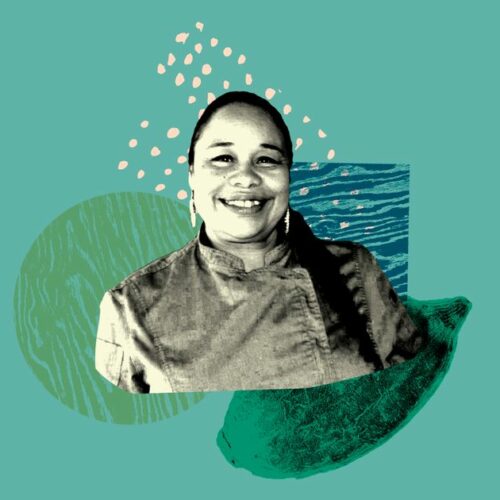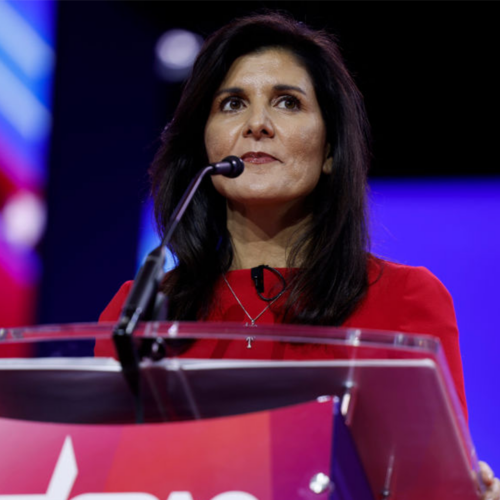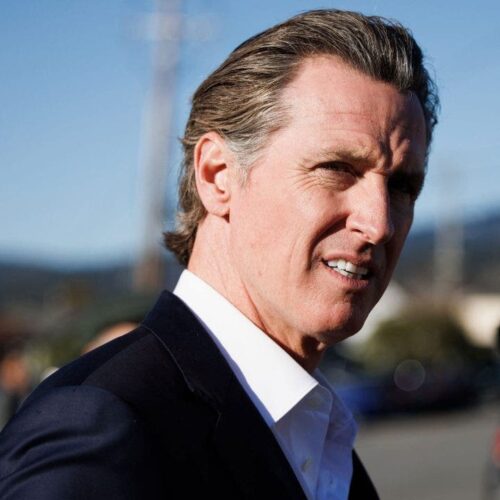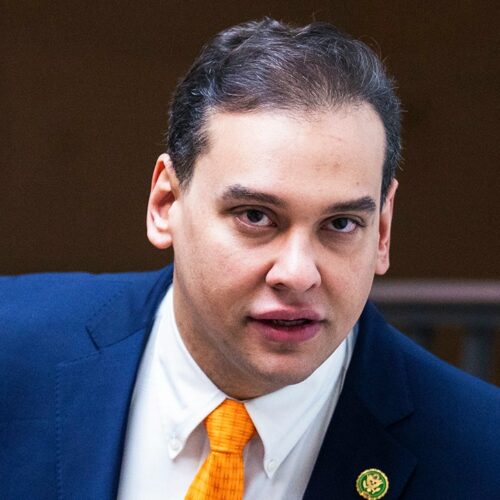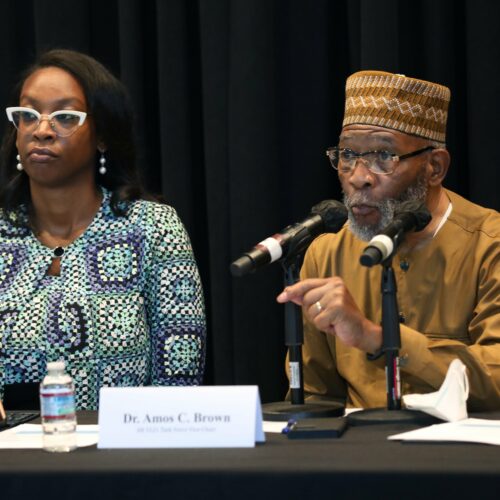Chef Crystal Wahpepah is the owner of the Native American restaurant Wahpepah’s Kitchen in Oakland, California. Before opening her kitchen, she was among the first Native women to own a catering business, providing meals for events like the Visit Native California launch party and the American Indian Film Festival. She was also the first Native chef to appear on the Food Network show “Chopped.”
This Kickapoo chef has traveled the country speaking at food summits and building relationships with Indigenous producers, earning her the Indigenous Artist Activist Award. In this edition of Voices In Food, Wahpepah discusses why she encourages people to acknowledge that North Americans live on stolen land and how her restaurant aims to reclaim Native food sovereignty.
I was born on Thanksgiving in Oakland, California. My grandpa would always tell me cute little stories about how everybody stopped eating and went to the hospital when I was born. My grandparents came to Oakland in the ’50s when the Relocation Act was happening here in the Bay Area. [Editor’s note: The Indian Relocation Act of 1956 was part of a government effort to remove Native Americans from their land and relocate them to major urban centers, including the Bay Area.]
My grandmother and my aunts taught me how to cook. My grandmother was always cooking, all the time. We were always in the kitchen. And we always had traditional Native foods at home. I was young, about 6 or 7, and I realized, “Wow, how come we don’t see our foods anywhere else?”
We cooked a lot of corn soups and fry bread, and we always had deer. When it comes to making dried corn soup, when I do it here at the restaurant, I can just close my eyes and I’m in the kitchen with my grandmother.
People ask, “How does a Kickapoo have a restaurant here in Oakland?” Just being born and raised here, my family was involved in a lot of things when it came to Native American rights. And this is where I always see that gap when it comes to our food.
“I love Thanksgiving. … Of course, it’s when the Pilgrims came and took the land, but it’s also a celebration of how we honor our ancestors.”
We have a huge Native community here. We’re on Ohlone land, and there are a lot of California Natives and a lot of Natives from the Relocation Act. So you have many different tribes. Growing up, we had a lot of powwows, a lot of drums and dancing, and a lot of laughter within the Native community here — which still takes place.
We eat a lot of corn, squash and venison. At the restaurant, we’re known for our bison blueberry meatballs, and we do venison blueberry meatballs. That’s one of my staples.
Cooking is a lot about connection for me. It’s a connection to my ancestors and also to my roots. When I look at it now, this is really something that was very healing and something I was drawn to. I can’t explain it. But I had this beautiful relationship with our food.
I love Thanksgiving. I love the holiday. I’m very grateful because that’s when I was born, but I always have good memories of growing up and knowing what Thanksgiving was really about. Of course, it’s when the Pilgrims came and took the land, but it’s also a celebration of how we honor our ancestors.
We would always go to Alcatraz when we were younger, and then we would do a Thanksgiving dinner. At the sunrise gathering on Alcatraz, we’d acknowledge our ancestors and also talk about the reason why this land was stolen and how we can heal and connect when it comes to Native American and Indigenous people’s human rights.
Today, I think we need to lean toward acknowledgement on Thanksgiving. When it comes to the food and ingredients, for instance, if you just have a pumpkin pie or if you have some squash, think about whose land that came from. Have that moment of silence acknowledging whose land you’re on, what has taken place and the meaning of Thanksgiving. I don’t like to think of Thanksgiving and what it’s really about, but when it comes to thinking about our ancestors when we’re all gathered together and we’re about to eat, I just want people to realize whose land they’re on.
“I don’t like to think of Thanksgiving and what it’s really about, but when it comes to thinking about our ancestors when we’re all gathered together and we’re about to eat, I just want people to realize whose land they’re on.”
Our mission is to acknowledge whose land we’re on and to actually reclaim sovereignty and Native foodways when it comes to having these foods accessible to our elders and to our youths. Our future is in the next generation.
Since I opened the restaurant in November, 2021, it’s been a beautiful Indigenous food journey. A journey of all the people that come in and all the support from the community that really wants to embrace your restaurant and your foods.
There are no words that can express the people coming into the restaurant, who maybe haven’t been to their homeland, and they literally have that utmost honor and respect for the foods you’re serving. My grandparents are no longer here, but if I had a place where I could go get my grandmother’s soup, I would go. This is something where it’s a long time overdue.
It just tells you that your hard work pays off when elders come in and want to see what your restaurant is offering. I always have people come in, and their hearts are touched. When you can move a person by just making a dish on a plate, not just a dish on a plate, but actually what land it comes from, and you’re honoring it. I’m very honored to serve these foods to the people in the community.

